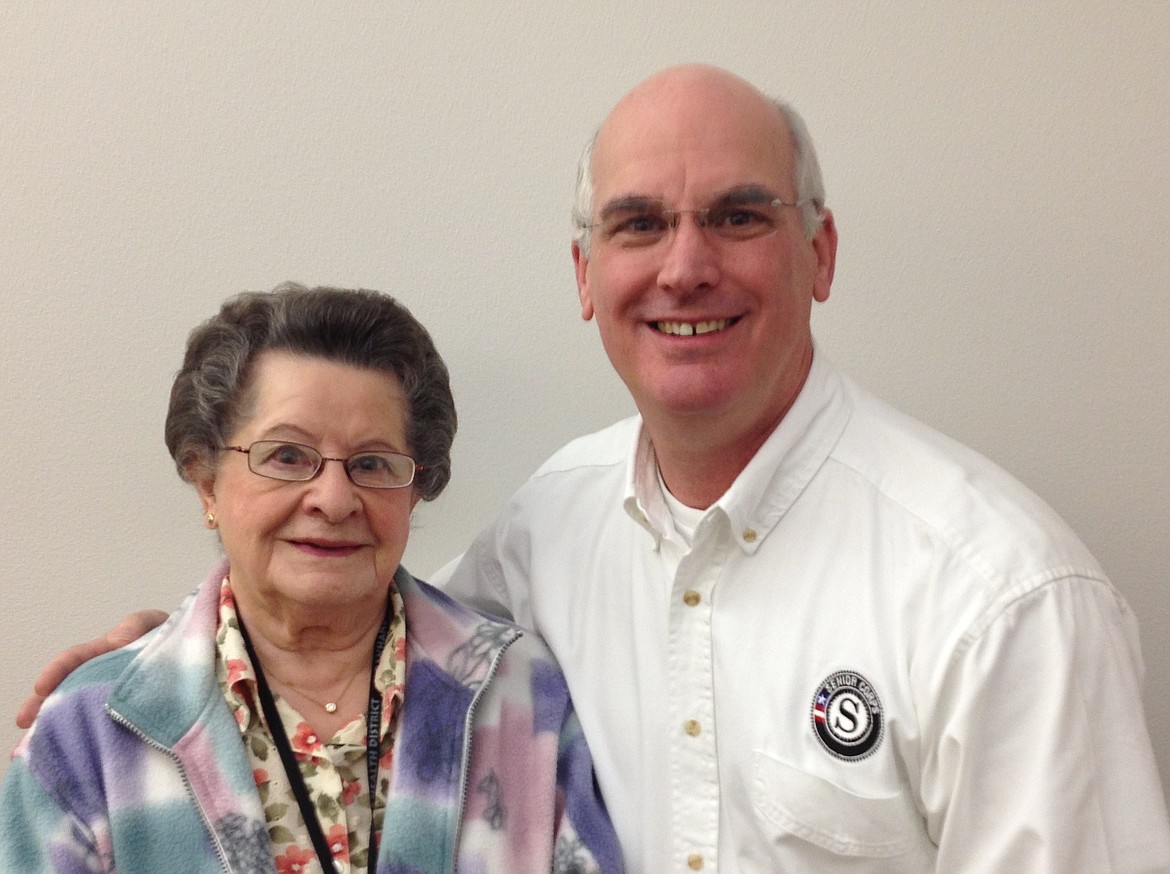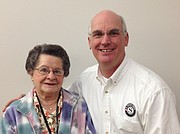Having compassion; making a difference: Senior Companions ease loneliness for others
Delores Hawkins, of Kootenai County, has been quietly bringing emotional support and other types of assistance to homebound adults in her community since 1994.
Sophie Larson has been doing the same in Shoshone County since 2005.
The women, seniors themselves, are volunteers with the region’s Senior Companions Program, managed in the state’s five northern counties by Panhandle Health District since 1987.
“I think we’re the best kept secret in North Idaho, and we’re looking to change that!” said Daniel Perry, Senior Companions Project Director for Panhandle Health.
Senior Companions are volunteers who are 55 or older who bring friendship, socialization - and help with some of the daily tasks of living - to people who often need it most: frail seniors and other adults who often live alone and are unable to drive.
Hawkins plays dominoes with one woman she visits. Another, she drives to doctor’s appointments.
“I’ll fix them a cup a coffee or tea, and we’ll talk about whatever they like to talk about,” Hawkins said. “We might go for a little walk.”
Sometimes, she just sits with them.
“My husband told me about Senior Companions,” Hawkins said. “We were retired, and we were just sitting here at home. He said, ‘We should do this,’ and I said, ‘OK.’ We’ve been working with Panhandle Health ever since.”
Sophie Larson became a Senior Companion when her husband went into assisted living, and the transition was tough on her.
“I was going crazy,” she said.
Then a neighbor suggested that she get out of the house and keep busy by becoming a Senior Companion.
Larson agreed to give it a try. She said it changed her life and gave her a reason to get up in the morning.
That’s one of the main purposes of the Senior Companions Program - to provide meaningful retirement opportunities for people 55 and older.
“It was the best thing that ever happened to me,” she said. “I always wanted to be a social worker. Now they tell me I’m as close to a social worker as I can get.”
Perry said volunteers like Hawkins and Larson, who have great passion for the demographic they serve, are nearly indispensable.
“They’re helping prevent our clients, these elderly people, from falling through the cracks, unseen, unheard,” Perry said. “This has to come from the heart.”
Perry said the goal of Senior Companions — a Senior Corps program that operates under the umbrella of The Corporation for National and Community Service (CNCS) — is to help the clients live as independently as possible.
Services are offered to clients free of charge.
The federal tagline for the program is “Making Independence a Reality.”
Perry said it’s also about having compassion and making a difference.
The volunteers, who meet twice a week with clients, share their experience, strengths and offer companionship in different ways, depending on a client’s needs.
Senior Companions will shop with clients. They can provide transportation so clients can run errands, participate in community events or get to health care appointments. Sometimes Senior Companions will assist clients with reading and organizing mail and paperwork, or help a client find community resources.
“They might play a board game, watch a program together,” Perry said.
Volunteers also provide respite for family caregivers, giving them needed time for themselves.
What Senior Companions don’t do, he said, is provide medical or home health care.
It’s a volunteer effort that connects people to purpose.
Through their visits with clients, Senior Companions develop bonds with people who are isolated and often lonely.
“You’re building rapport over a period of time,” Perry said.
Larson and her clients often go shopping. They always go to lunch. Sometimes they embark on road trips to Coeur d’Alene or even Spokane.
The Senior Companions Program benefits the volunteer companions as well as the clients.
A study launched in 2015 by CNCS found that 70 percent of senior volunteers experiencing depression before volunteering had fewer symptoms at the end of a year.
Nearly the same percentage who reported feelings of isolations prior to serving as volunteers said that through their service they have improved social conditions.
In North Idaho, 98 percent of Senior Companions volunteers report feeling more connected to their community, and 87 percent say they are more active because of the program.
Larson said being a volunteer Senior Companion keeps her from staying home and stagnating.
It also gives purpose to her outgoing, welcoming nature.
She said her sons have nicknamed her the “Magnet Mama,” because she makes friends effortlessly, wherever she goes.
And each connection, especially those she makes as a Senior Companion, leaves a lasting impact.
Staff Writer Kaye Thornbrugh contributed to this report.



